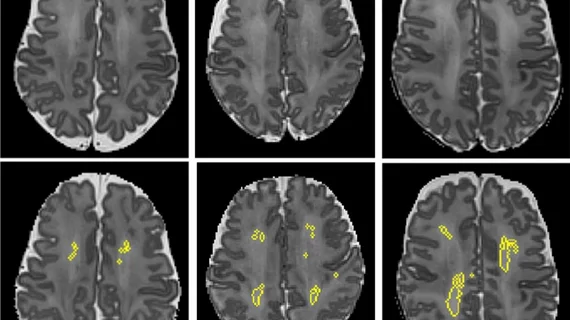Wearable MRI helmet makes brain scans quicker, quieter and crisper
An innovative new helmet that can be worn during MRIs of the brain is said to make the scans quicker and quieter while also improving image quality, according to research published recently in Advanced Materials.
The helmet is the creation of Boston University College of Engineering professor Xin Zhang and her team of researchers. It is made from magnetic metamaterials. When placed closer to the desired body part (in this case, the brain) during the MRI, the scan sequences can be completed in half the amount of time it would normally take, experts suggested. This also produces better overall image quality by increasing the signal-to-noise ratio.
“Experimental validation is performed in a clinical 3T MRI system, demonstrating that the metamaterials enable a marked boost in radiofrequency field strength under resonance-matched conditions, ultimately yielding a dramatic increase in the signal-to-noise ratio of MRI,” explained Zhang and colleagues.
Metamaterials are engineered structures made from small unit cells, called resonators, that are grouped together in exacting fashion. They come in varying sizes and shapes and are arranged in repetitive patterns. When grouped together they can absorb and manipulate radio, sound, and electromagnetic waves.
The wearable device was built with a series of magnetic metamaterial resonators made from 3D-printed plastic tubes. Each are covered in copper wiring and arranged to align with the magnetic field of the MRI scanner.
“The tunable metamaterials offer a novel pathway toward the practical utilization of metamaterials in MRI, as well as a range of other emerging applications,” the researchers noted.
The helmet can make brain MRI scans more efficient and, therefore, less costly. In the future, the researchers hope the device can also be incorporated into protocols for low-field MRI scanners, making the technology more easily accessible for more patients and providers.
For more information, click here.

